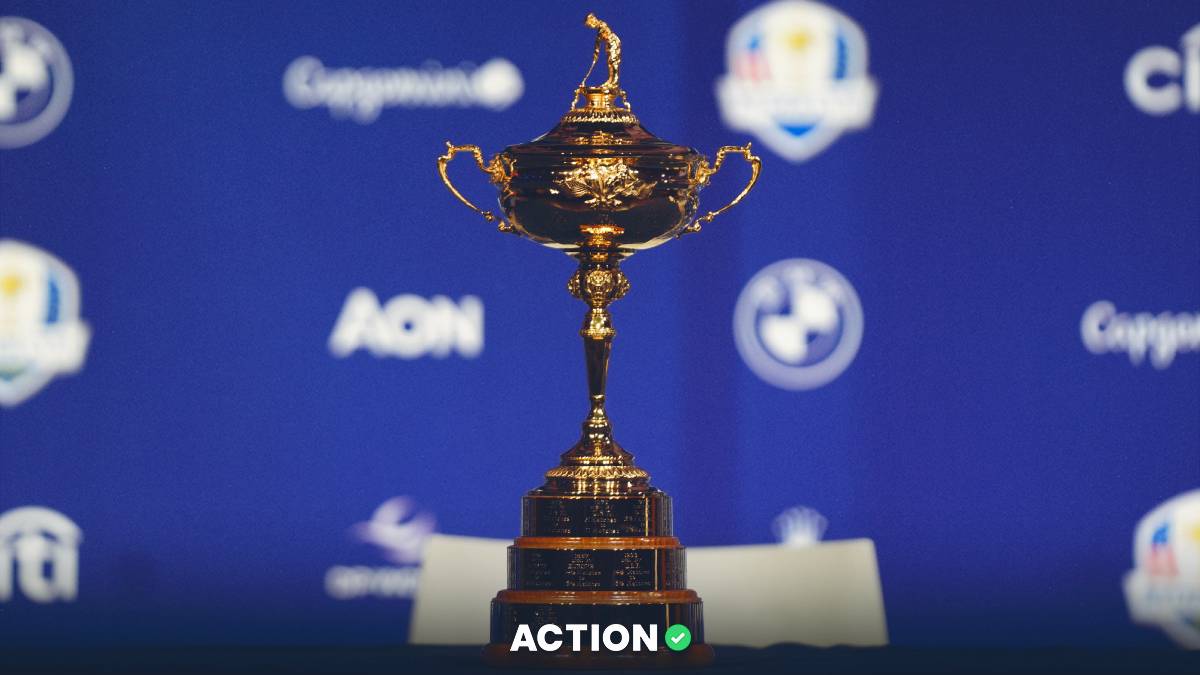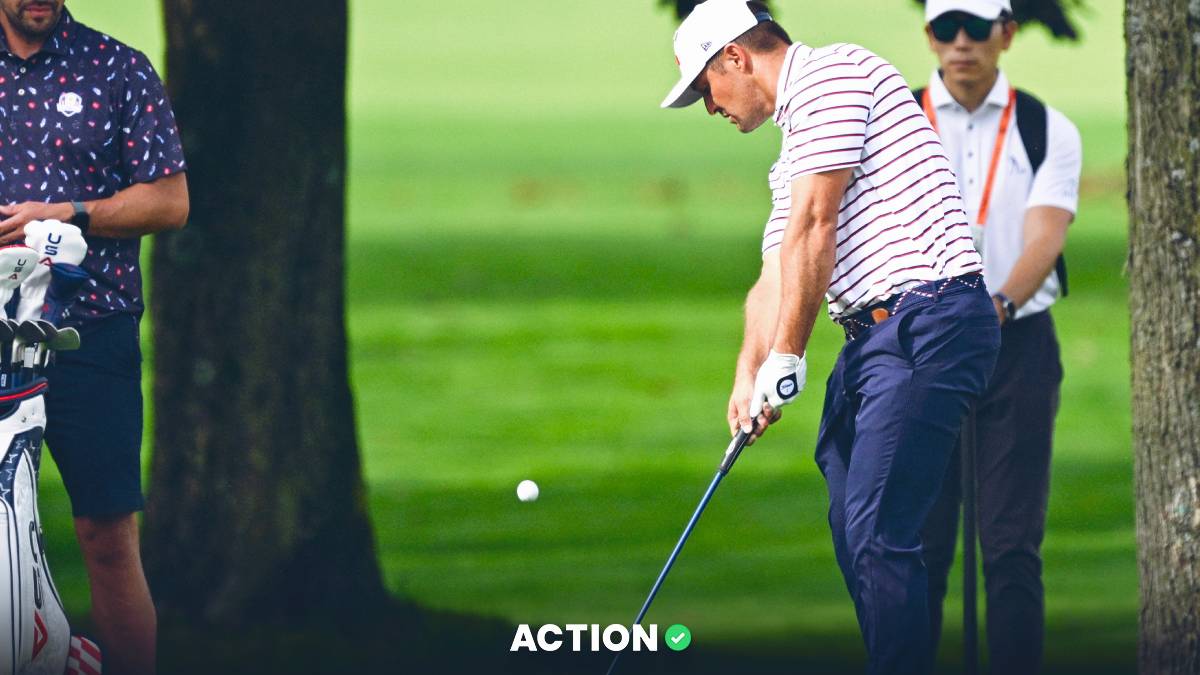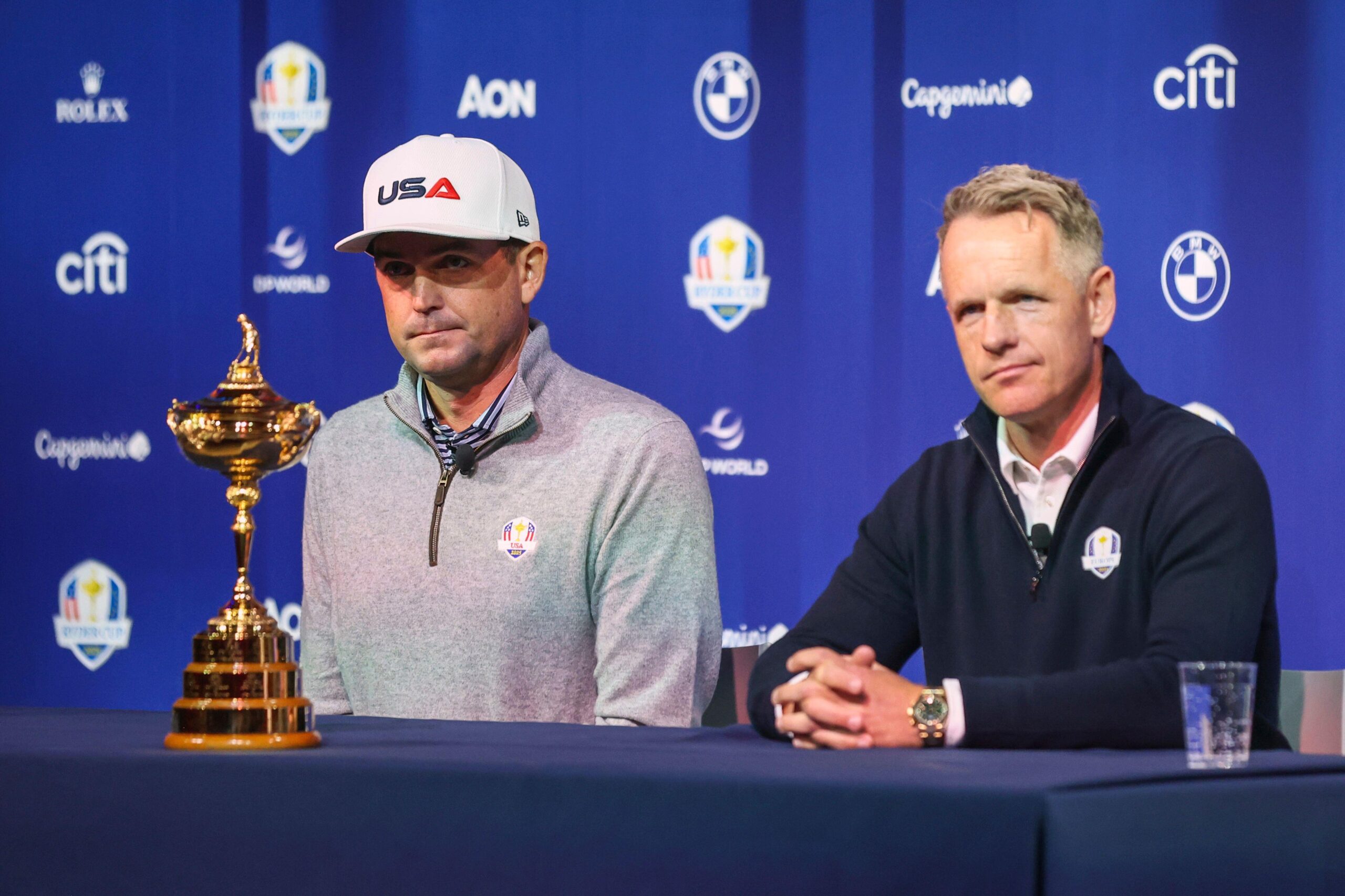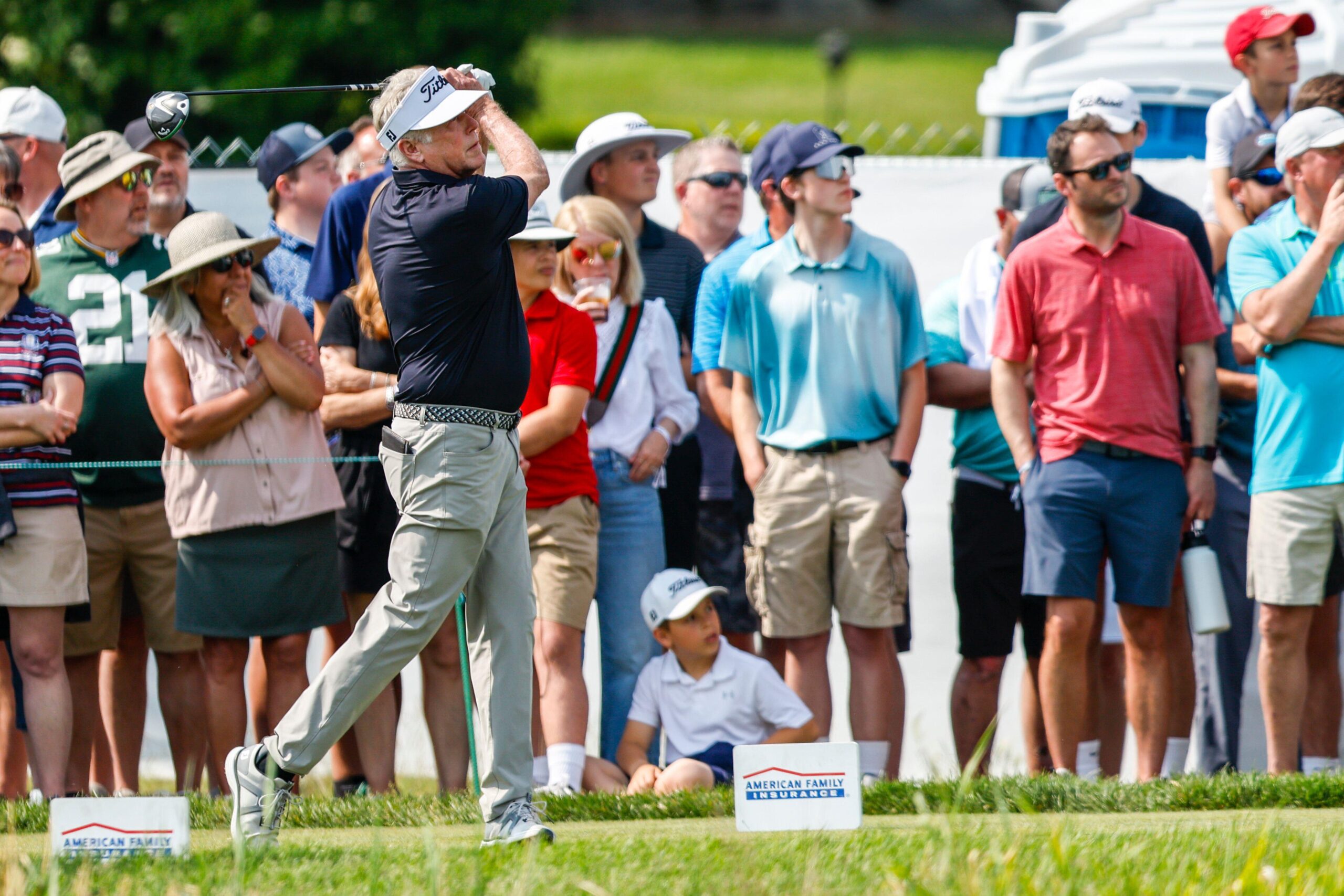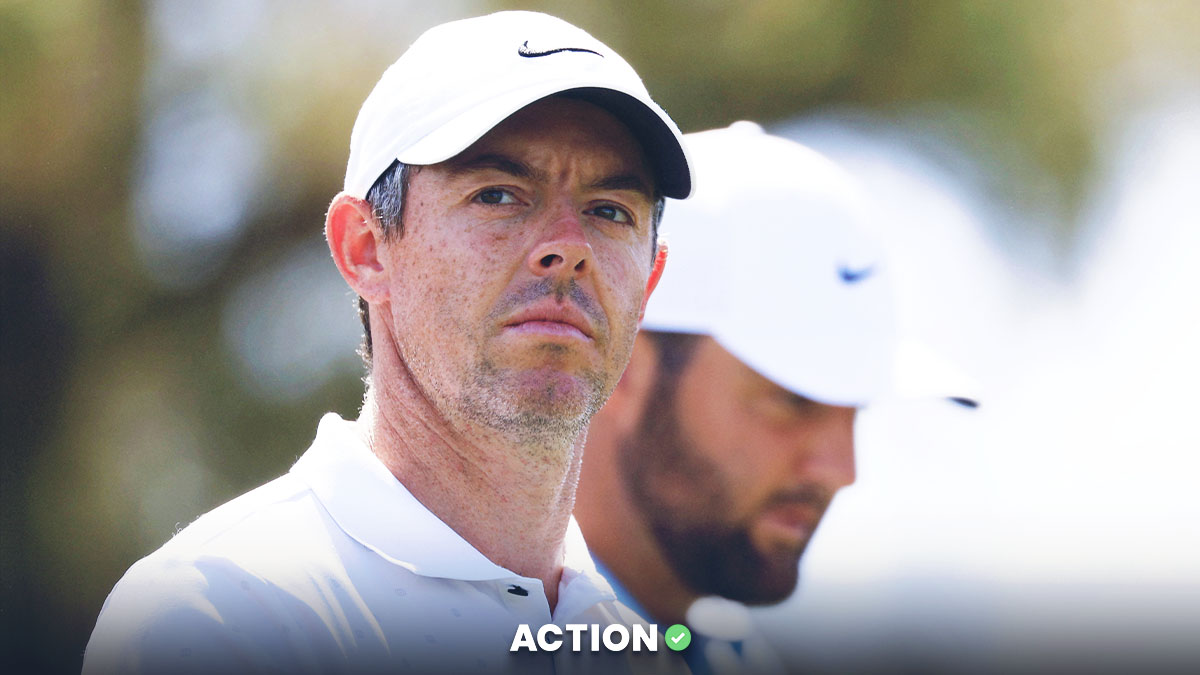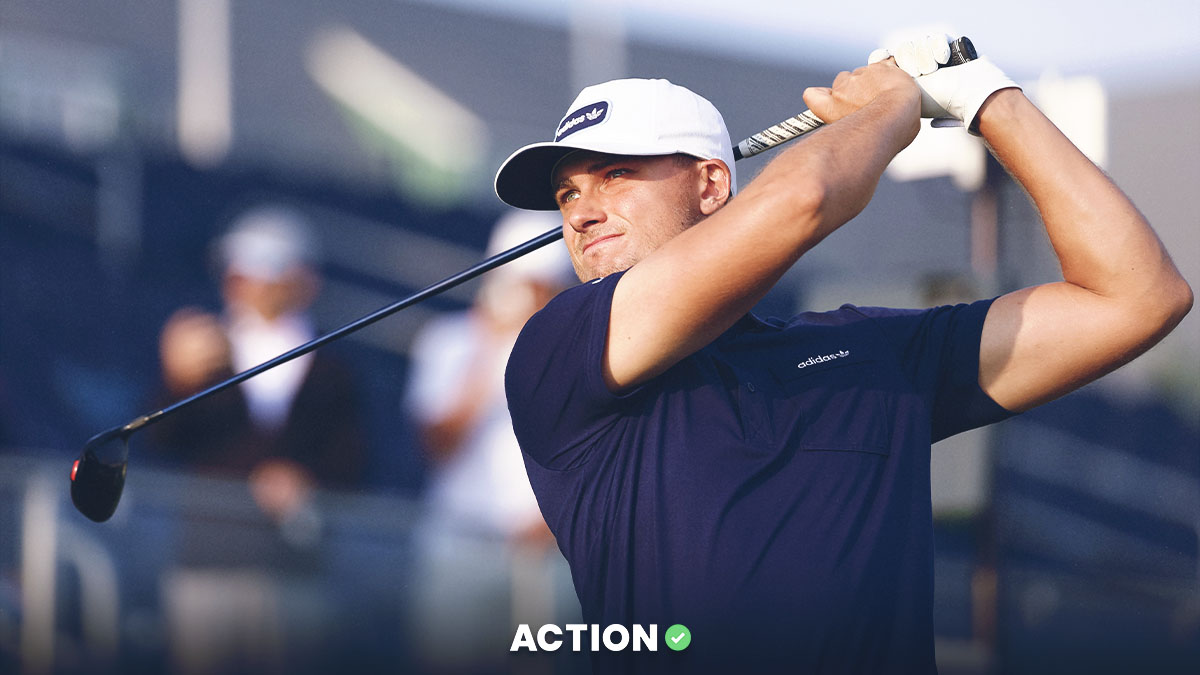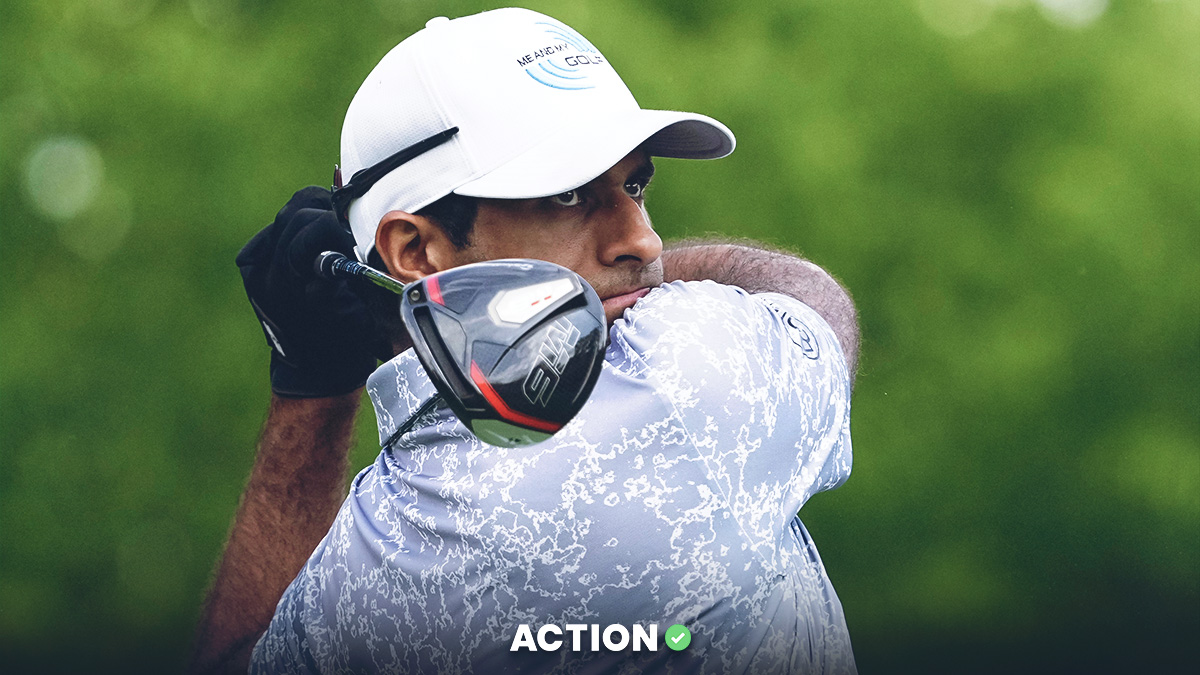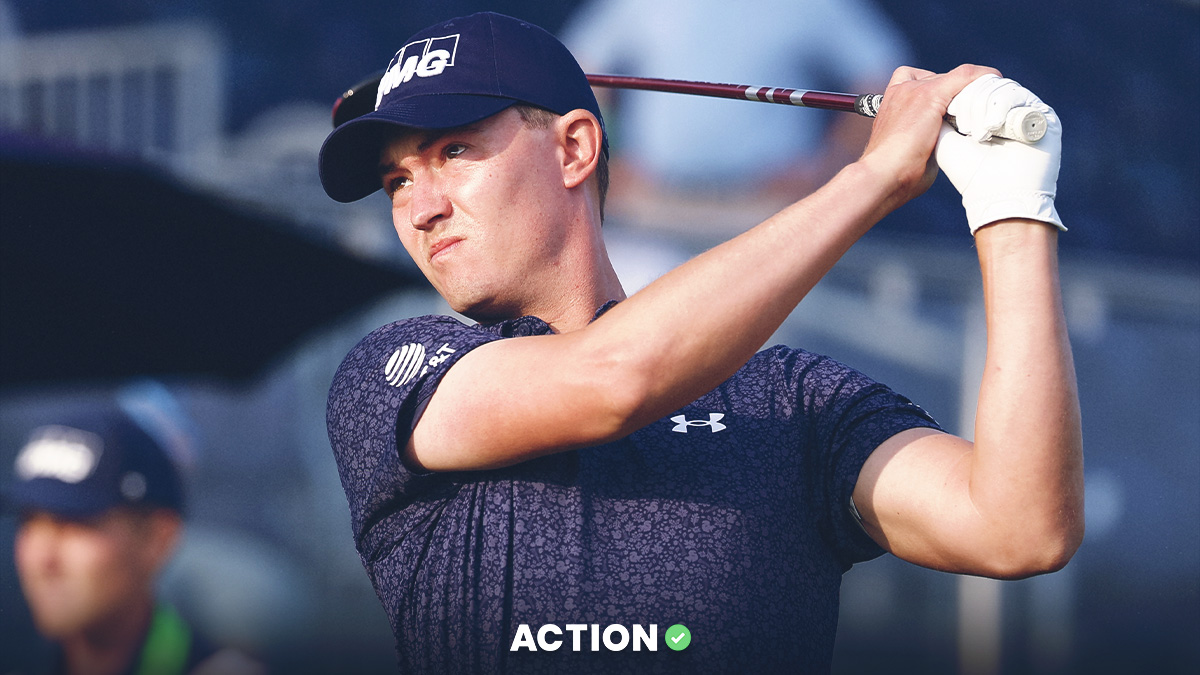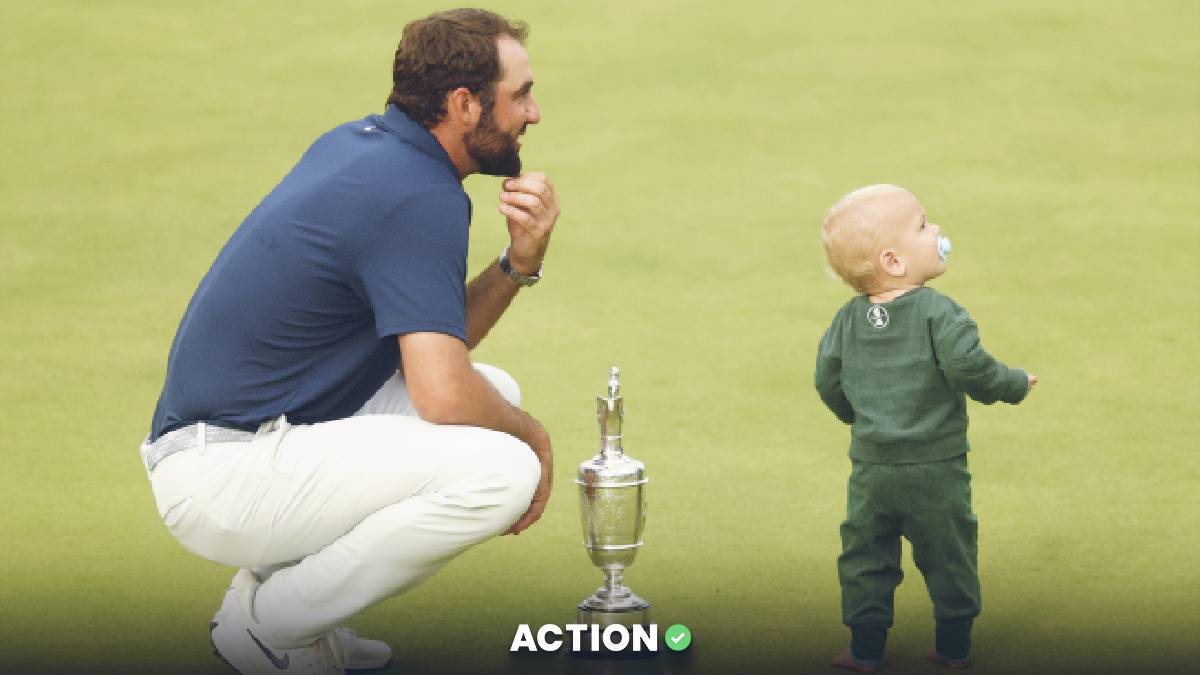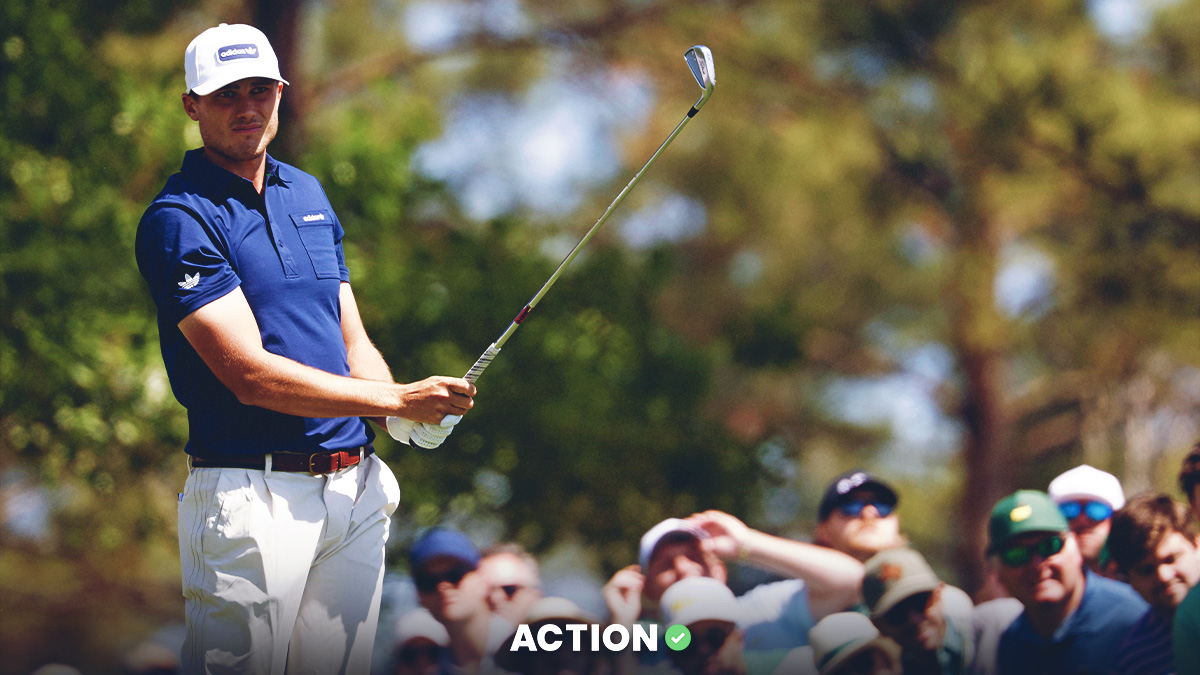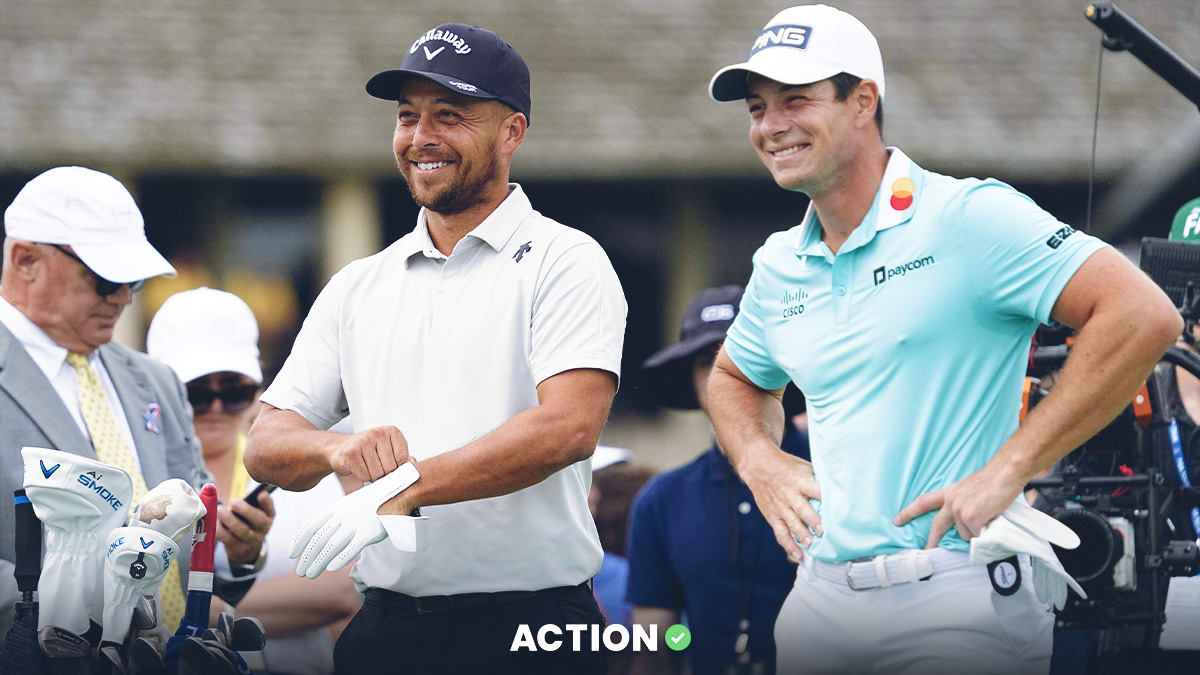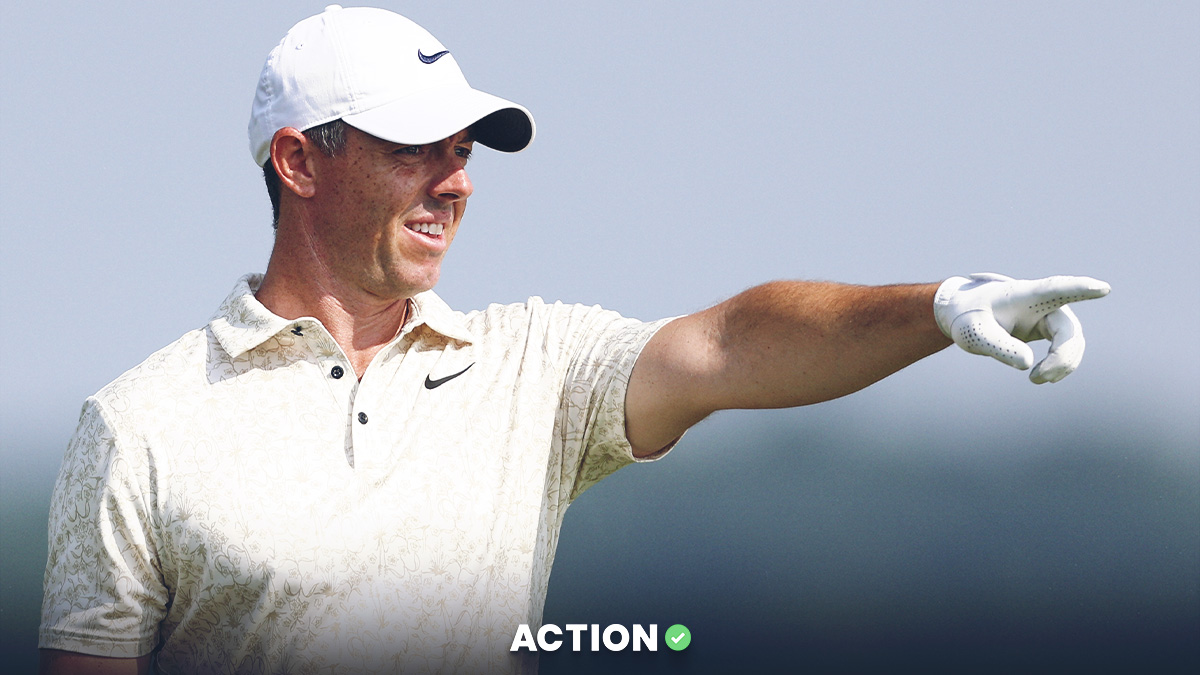Way back in 2016, I wrote about an idea called Vegas Bargain Ratings, which might sound more complicated than it actually is.
The basic premise: DraftKings salaries are highly correlated with odds to win a golf tournament, but it's not a perfect fit. By highlighting the golfers for which it's not correct — and this assumes that the liquid betting market is more efficient than static DFS salaries, which isn't a hot take — we can identify mispriced golfers, or ones that the betting market thinks are undervalued.
We can do this exercise with a variety of metrics, including our catch-call metric, Long-Term Adjusted Round Score, which is the average strokes on a course with adjustments made to account for the difficulty of the course and the strength of the field.
So I can also compare Long-Term Adjusted Round Score to odds to win to identify which golfers are underpriced in the betting market relative to their long-term play.
That shouldn't be the end of the betting story — course fit and history are also important, as is recent play when there's not a layoff like we've had — but it is a valuable data point in researching for this week.
Let's start with the DFS side of things; betting will be in the section below.
The Best & Worst DFS Values According to the Betting Market
What to do with Bryson DeChambeau: that's the question this week.
Honestly? While a longshot in Nate Lashley won the event last year and the week does seem set up for a similar conclusion, I'm not off Bryson. I mean, I don't want to pay a 6/1 price tag for him to win the tournament — but in DFS, yeah, I have no problem using him in cash games.
Whether it's narrative (he's clearly zoned into golf right now given his extreme workout regiment and the fact he's playing every tournament) or his data (he can gain like 60 strokes on the field off the tee) he's intriguing.
Forget his to-win odds, which are obviously high. He's also approaching even money to get inside the top-10 and is a massive favorite to make the cut. That's incredibly valuable in cash games, where the goal is really to try to get all six golfers inside the cut.
ROCKET MORTGAGE PROMO! Get up to $500 FREE when you bet on the Rocket Mortgage Classic at BetMGM
Yes, he's expensive, but not nearly as much as he should be according to the betting market. And the reason, as I discuss I feel ad nauseam (but thanks for humoring me yet again), is because DraftKings operates with a salary cap and just can't properly price the top tier. If they put him where he should be, he'd be too expensive to roster at all, and, well, that's no fun.
As a result, he's a fairly easy play in cash games given his safety. Tournaments, though, are a different animal because of the ownership dynamic. Will he approach 30% in this weaker field? Probably not, but that calculus matters — it's incredibly negative EV (expected value) to duplicate lineups, and the odds of that happening obviously go up a lot with a 30% owned golfer.
So I'd use this exercise to try to identify guys to use in cash games — and if it looks like a week is ever trending toward a more balanced approach in tournaments rather than stars-and-scrubs, that's the time to take advantage.
The Best & Worst Betting Values According to Adjusted Round Score
Again, we can do this same strategy with Long-Term Adjusted Round Score and outright odds. Using a regression, we can "predict" what a player's implied probably should be and compare it to their actual implied probability to win.
Of course, there are some complications here, too. Notably, there's more to handicapping than just long-term play. Course history and fit really matter, as does current form and a lot of narrative-driven factors. Further, long-term metrics may not capture a young golfer on the upswing, like Viktor Hovland for example.
Further, betting markets have juice, and notably it's not evenly distributed across all the golfers evenly. Thus the implied probabilities for both actual odds and predicted odds add up to over 100% — I kept it that way just because of the uncertainty of the hold. This is more of an exercise to identify mispriced golfers than something that should be used in an optimizer anyway.
Looking to the golfers, the exercise this week definitely overstates the likelihood to win for some of the lower golfers. Wesley Bryan, Cameron Tringale and Russell Knox obviously should be lower than 4% to win the tournament, but it does show they're probably a little undervalued in the DFS landscape given their long-term talent.
Bryan is a particularly interesting guy this week. He's coming off a long injury layoff, which is why his LT Adj Rd Score is so low — it's a small sample size. Those tournaments, though, have been impressive, and as Josh Perry noted here, Bryan led the field in Strokes Gained: Approach last week.
Again, this regression is designed to just help you easily spot golfers who are a bit undervalued according to their long-term talent via our proprietary metric. I wouldn't blindly bet them to win, but it's possible that guys like Tringale, Adam Hadwin, Rory Sabbatini and others are also a little undervalued in more safe markets like them to get into the top-40, for example.
And again, given DraftKings salaries and betting odds are tied, it also might mean that those guys are a bit underpriced given their talent and could be worthy dart throws in tournaments there.
Good luck this week!



